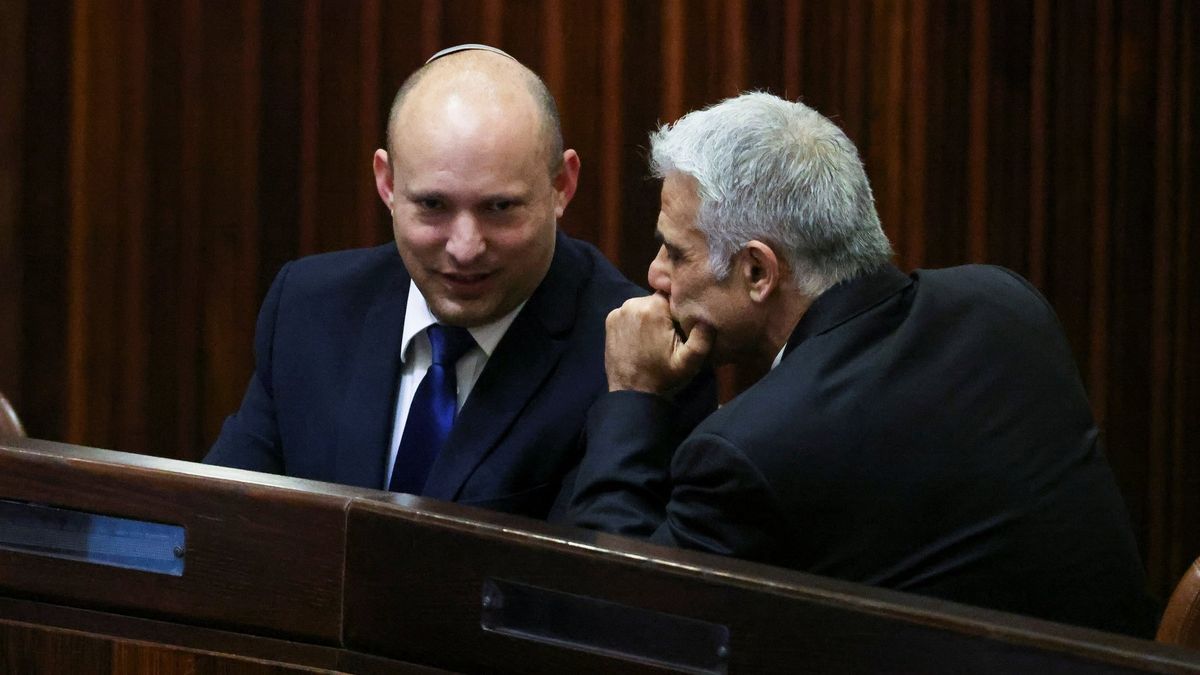How elections work in Israel and why it’s taken so long to get a new prime minister

A few minutes every morning is all you need.
Stay up to date on the world's Headlines and Human Stories. It's fun, it's factual, it's fluff-free.
Over the last two years, there have been four different elections because of the turmoil within the country. Since 2019, no one – not the current prime minister, Benjamin Netanyahu, nor the leaders of any of the opposition parties – has been able to gain the support of the majority needed to form a government.
How do Israeli elections work?
- When Israelis vote, they don’t actually vote for an individual. Instead, they vote for a party and, once all the votes are counted, the 120 seats in the Israeli parliament get divided up according to the support each party has received.
- There are more than a dozen different political parties and none of them have ever gained control of even half of the parliament. Because of this, parties are forced to form coalitions to get things done.
- The parliament, which in Israel is known as the Knesset, is the group put in charge of choosing the president every seven years.
- Whenever a new Knesset is elected, the president chooses a member of it, usually the leader of the party with the most control, to try and gain the majority of support from the parliament necessary to form a government.
- If that person successfully creates a coalition government with a majority of the Knesset (i.e, at least 61 of the 120 members), they then become prime minister. If not, then the leader of the next biggest party gets the chance to try.
Why has Israel had so many elections recently?
- One of the things that both the president and the Knesset have the power to do is call for an election. An election can also be triggered if the parliament can’t manage to pass Israel’s annual budget.
- Over the last two years, there have been four different elections because of the turmoil within the country. Since 2019, no one – not the current prime minister, Benjamin Netanyahu, nor the leaders of any of the opposition parties – has been able to gain the support of the majority needed to form a government.
- What that’s done is created a sort of endless cycle of elections that has moved around the number of seats controlled by various parties in parliament. The current prime minister then tries to form a coalition and fails, then each consecutive leader tries to form a coalition until eventually, the budget doesn’t get passed and another election is triggered.
- This cycle has also allowed Netanyahu to take advantage of a loophole that allows him to stay in power if a new election is triggered from budget issues, rather than being called by the parliament or the president.
What’s changed recently?
- If the deal formalizing the coalition succeeds, the new Israeli government isn’t expected to handle highly controversial issues like Israeli-Palestinian relations because of the ideological differences within the coalition. Instead, it will likely focus on things like the budget, the economy and infrastructure.
- This week, it was announced that a deal had been reached with a wide array of Israeli opposition parties to form a government that would oust Netanyahu, who is the longest serving prime minister in Israel’s history.
- The announcement is a big deal largely because it was possible thanks to the support of a right wing party led by Israel’s former defense minister, Naftali Bennett.
- Bennett was formerly a close ally of Netanyahu’s and it would be nearly impossible for Netanyahu to create a coalition government without the support of Bennett and his party.
- As it stands it appears likely that Bennett will become the prime minister until 2023 when Yair Lapid, the leader of the opposition centrist party, will take over.
Have a tip or story? Get in touch with our reporters at tips@themilsource.com




Comments ()